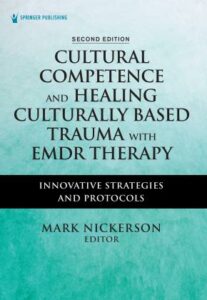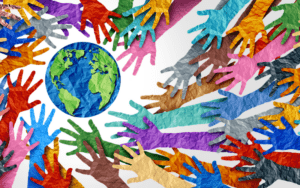EMDRIA Members Respond: Identity and Heritage Representation for Hispanic Heritage Month
EMDRIA Members answer the question “Describe a bit about your experience as a member of the Hispanic/Latinx community and how your identity has informed, strengthened, and/or challenged your EMDR practice.”
Read MoreLeadership Series: Culturally Based Trauma and Adversity: Recognition, Definition, and Implications
This course offers the term Culturally Based Trauma & Adversity (CBTA) for trauma based in social, cultural or societal circumstances.
Read MoreBIPOC and Ally Approaches to Trauma-Focused Anti-Oppression Systemic Change
This presentation will demonstrate that when there is full integration of anti-oppressive practice into EMDR therapy, change is possible.
Read MoreLGBTQPIA2S+ and Domestic Violence: Culturally Sound and Ethical EMDR Therapy
This presentation addresses the experiences of LGBTQPIA2S+ individuals who have or are at risk for experiencing domestic violence.
Read MoreBroaching the Themes of Race, Ethnicity, and Culture in Consultation
Norma Day-Vines discusses a multicultural orientation framework and “broaching” in which counselors consider the client’s race, ethnicity, and culture and how it may impact the counseling.
Read MoreBroaching the Subjects of Race, Ethnicity, and Culture
Norma Day-Vines discusses a multicultural orientation framework and “broaching” in which counselors consider the client’s race, ethnicity, and culture and how it may impact the counseling.
Read MoreTreating Gender Dysphoria with EMDR Therapy
Conceptualize gender dysphoria through an AIP lens and implement a model of EMDR therapy for reducing gender dysphoria.
Read MoreEmpowering Youth and Families: Anti-Racist Psychotherapy using EMDR Therapy
This presentation will explore recommendations for conducting EMDR therapy from an anti-racist perspective.
Read MoreMaking Space to Broach Race, Ethnicity, and Culture Within the Context of EMDR
Participants will develop strategies for broaching the contextual dimensions of race, ethnicity, & culture using the Broaching Framework.
Read MoreCultural Competence and Healing Culturally Based Trauma With EMDR Therapy: Innovative Strategies and Protocols, 2nd edition (Springer, 2022)
Tools for developing a culturally competent EMDR clinical practice and strategies for working with specific cultural populations.
Read MoreBIPOC Perspective on EMDR with Teenagers
BIPOC Perspective on EMDR with Teenagers: Cultural Insights and Challenges. Insights from the Summer 2022 issue of Go With That Magazine.
Read MoreEMDRIA Members Respond: How Can the Field of EMDR Therapy Increase Access of Care for BIPOC Individuals?
EMDRIA Members Respond to questions: “What opportunities do you see in the field of EMDR therapy to increase access of care for BIPOC individuals?” and “Do you have any favorite free resources regarding BIPOC populations and EMDR therapy?”
Read More







